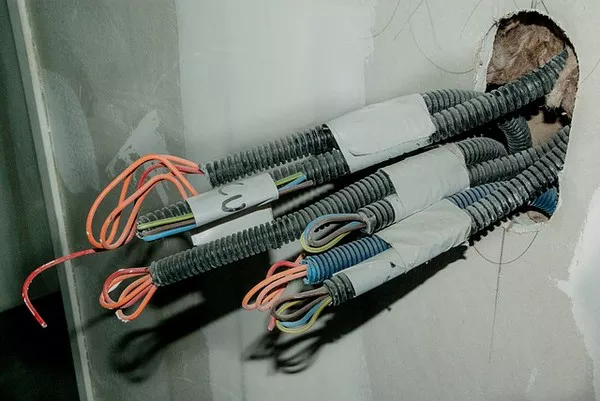When it comes to electrical wiring and outlets, selecting the appropriate type of wire is crucial to ensure safety and efficiency in your electrical system. The type of wire you use for outlets can impact the overall performance and safety of your electrical circuits. In this comprehensive guide, we’ll delve into the different aspects of choosing the right type of wire for outlets, covering key factors such as wire gauge, insulation material, and usage scenarios.
1. Understanding Wire Gauge
Wire gauge, often referred to as the wire’s thickness or diameter, plays a significant role in determining the amount of electrical current a wire can safely carry. The most common wire gauges used for outlets are 12-gauge and 14-gauge wires.
12-Gauge Wire: This thicker wire is suitable for circuits that will carry higher electrical loads, such as those powering appliances and heavy-duty equipment. It is commonly used for kitchen outlets, laundry rooms, and other high-demand areas.
14-Gauge Wire: Slightly thinner than 12-gauge wire, the 14-gauge wire is suitable for general-purpose circuits and outlets. It is commonly used in bedrooms, living rooms, and other areas with standard electrical needs.
2. Insulation Material
The insulation material of the wire is crucial for preventing electrical leakage, protecting the wire from environmental factors, and ensuring long-term safety.
Non-Metallic Sheathed Cable (NM): NM cable, also known as Romex, is a commonly used type of wire with a plastic insulation that provides protection against moisture and abrasion. It is suitable for indoor installations and is often used for residential outlets.
Metal-Clad Cable (MC): MC cable features a metal casing that provides enhanced protection against physical damage and fire hazards. It is commonly used in commercial and industrial settings where additional durability is required.
3. Types of Outlet Wiring
Different types of outlets may require specific wiring configurations to ensure proper functionality and safety.
Standard Outlets: Standard outlets, also known as duplex outlets, require a hot wire (black or red), a neutral wire (white), and a ground wire (green or bare copper). The hot wire carries the electrical current, the neutral wire completes the circuit, and the ground wire provides a path for excess electricity to safely dissipate.
GFCI Outlets: Ground Fault Circuit Interrupter (GFCI) outlets are designed to provide an extra layer of protection against electrical shock. They feature a built-in circuit breaker that trips if it detects a ground fault, preventing potential hazards. GFCI outlets require an additional hot wire, neutral wire, and ground wire.
AFCI Outlets: Arc Fault Circuit Interrupter (AFCI) outlets are designed to detect and prevent electrical arcs, which can lead to fires. They require a dedicated neutral wire and a dedicated ground wire, along with the hot wire.
4. Consideration for Specific Usage Scenarios
The type of wire you choose should also align with the specific usage scenarios and locations where the outlets will be installed.
Outdoor Outlets: For outdoor outlets, it’s essential to use wire with insulation designed to withstand exposure to moisture, sunlight, and other environmental elements. Look for wires rated for outdoor use, such as UF (Underground Feeder) or WR (Weather-Resistant) cables.
High-Moisture Areas: In areas prone to high moisture, such as bathrooms and kitchens, it’s recommended to use wires with moisture-resistant insulation to prevent damage and potential electrical hazards.
Long-Distance Runs: For outlets located far from the main electrical panel, consider using thicker wire (lower gauge) to minimize voltage drop and ensure consistent electrical performance.
5. Seeking Professional Guidance
While this guide provides valuable insights into selecting the right type of wire for outlets, it’s important to note that electrical work should always be carried out by qualified professionals. Consulting with a licensed electrician ensures that your wiring meets local codes and regulations, enhancing safety and preventing potential issues down the line.
Conclusion
Choosing the appropriate type of wire for outlets is a critical decision that impacts the safety and functionality of your electrical system. By understanding wire gauge, insulation materials, outlet wiring types, and specific usage scenarios, you can make informed choices that align with your needs and ensure a secure and efficient electrical setup. Remember, when in doubt, always consult a professional electrician to ensure the best results for your electrical projects.

